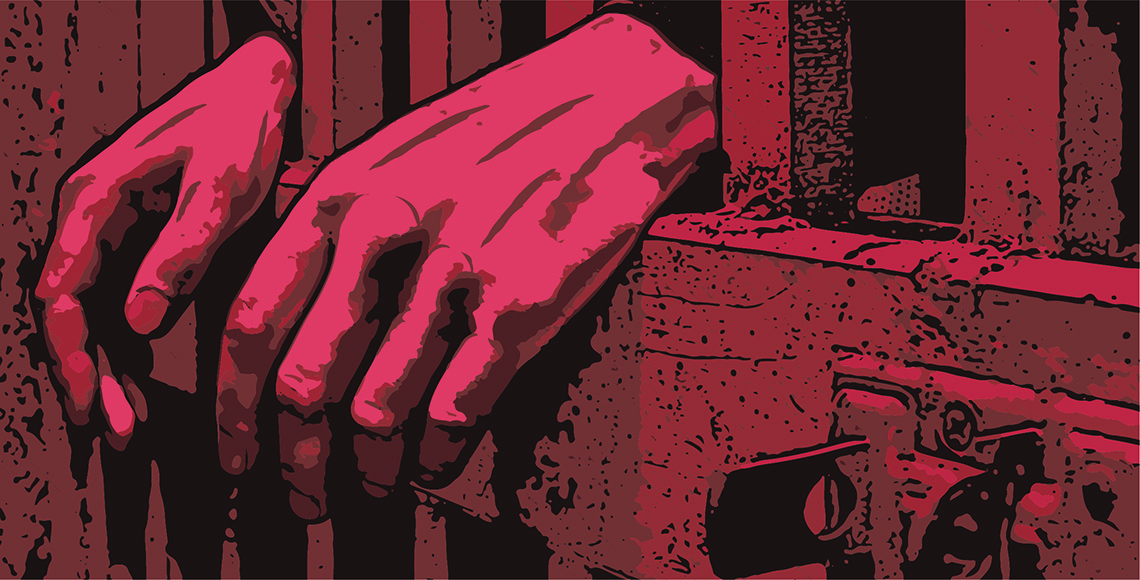These situations may arise when security concerns of administrators or officers come into conflict with the patient’s expressed or implied medical needs. Such situations present “dual loyalty” conflicts, defined as a conflict between professional duties to a patient and obligations to a third party such as an employer, insurer, or state (Pont et al., 2012). Dual loyalties can pose risks to the patient’s human rights (Atkinson, 2019), compromise a provider’s medical judgment (Soloman, 2005), and create liability risk for providers and facilities. On this website, we have gathered resources for healthcare providers who work with persons who are incarcerated or persons recently released to the community.
The Dual Loyalty Poster is an 11” x 17” PDF file that can be printed to display in the back (non-patient) areas of medical settings, including medication areas, nursing stations, staff rest areas, utility rooms, and conference rooms.
Dual Loyalty Poster (download and print for free [pdf])
The Dual Loyalty Short Simulation is an online exercise that takes a few minutes to complete. It can be used in demonstrations or trainings for healthcare providers to learn more about handling dual loyalty situations.
Dual Loyalty Short Simulation (this online interactive exercise helps rehearse response to a dual loyalty situation)
Healthcare providers working in the community may come into contact with system-involved persons or others who could benefit from service referrals. The Patient Needs Screening Tool provides a simple checklist that can assess the structural vulnerability of a patient and help providers to tailor treatment plans. Structural vulnerability is when an individual is at risk for negative health outcomes because of social conditions such as: poverty; literacy and educational access; neighborhood and community resources; racism; and gender or sexual discrimination (Bourgois et al., 2017). The tool and instructions can be downloaded and printed for use by healthcare providers.
Patient Needs Screening Tool & Instructions (download and print for free [pdf])
Further Reading:
Atkinson, H. (2019). Preparing physicians to contend with the problem of dual loyalty. Journal of Human Rights, 18(3), 339-355.
Bourgois, P., Holmes, S., Sue, K., & Queseda, J. (2017). Structural vulnerability: Operationalizing the concept to address health disparities in clinical care. Acad Med, 92(3), 299-307.
Glowa-Kollisch, S., Graves, J., Dickey, N., MacDonald, R., Rosner, Z., Waters, A., & Venters, H. (2015). Data-driven human rights: Using dual loyalty trainings to promote the care of vulnerable patients in jail. Health and Human Rights Journal, 17(1), 124-135.
Health Leads (2016). Social needs screening toolkit. www.healthleadsusa.org.
MacDonald, R., Rosner, Z., & Venters, H. (2015). Operationalizing a human rights agenda in correctional health. SGIM Forum, 38(1), 1-3.
Pont, J., Stover, H., & Wolff, H. (2012). Dual loyalty in prison health care. American Journal of Public Health, 102(3), 475-480.
Soloman, M. (2005). Healthcare professionals and dual loyalty: Technical proficiency is not enough. Medscape General Medicine, 7(3), 1-5.
Sue, K. (2017). How to talk with patients about incarceration and health. AMA Journal of Ethics, 19(9), 885-893.

This work was funded by the South Carolina Center for Rural and Primary Healthcare
as part of the state’s rural health initiative.
Website: http://sc.edu/ruralhealthcare
Email: SCRuralHealthcare@uscmed.sc.edu
For further information about these products, please contact dana.dehart@sc.edu.
